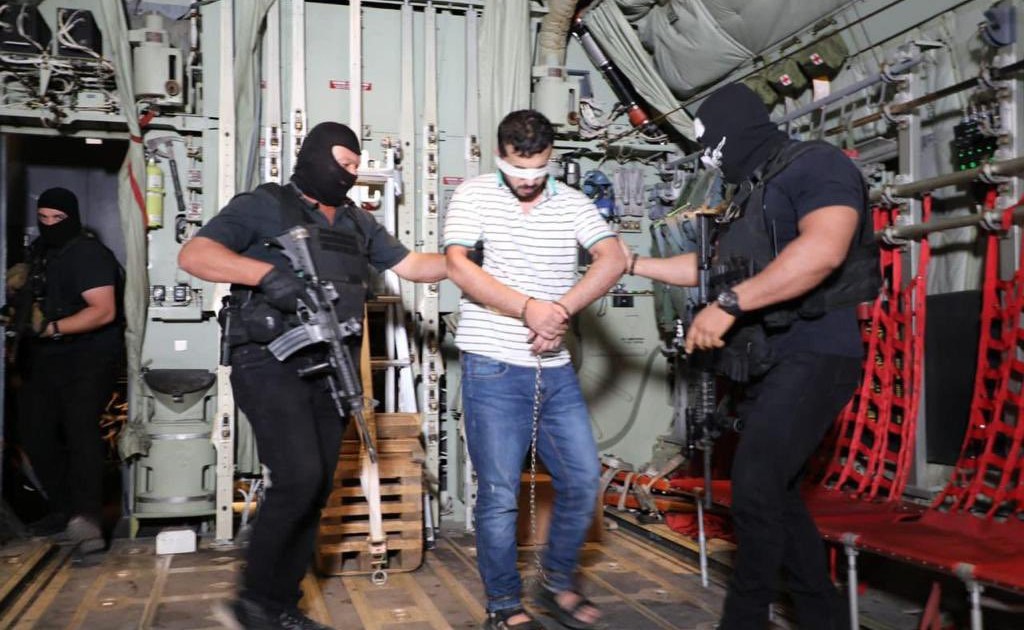On Monday evening, the Iraqi authorities announced the arrest of Ghazwan Al-Zoba’i, nicknamed Abu Obeida Baghdad, the mastermind behind one of the most bloody bombings that targeted a crowded commercial area in the Karrada neighborhood in central Baghdad in 2016, and caused hundreds of casualties, among the dead and wounded, and several other explosions.
Iraqi Prime Minister Mustafa Al-Kazemi tweeted the news of Al-Zobaie's arrest after a complex intelligence pursuit outside Iraq, describing Al-Zobaie as "the main culprit behind the Karrada atrocities and many more."
More than five years after the Karrada bombing, which broke the hearts of Iraqis, our heroic forces, after a complex intelligence pursuit outside Iraq, succeeded in arresting the terrorist Ghazwan al-Zawba’i, nicknamed (Abu Ubaidah Baghdad), responsible for this crime and other crimes.
pic.twitter.com/mFnVM5df9v
— Mustafa Al-Kadhimi
Two Iraqi intelligence officials told The Associated Press that al-Zobaie, an Iraqi, was arrested during a complex operation carried out in cooperation with a neighboring country, whose name they did not disclose.
He was tracked by the authorities for several months, and they indicated that Al-Zobaie was arrested in this country, and transferred to Iraq two days ago.
Al-Zobaie, 29, was an al-Qaeda fighter when the Americans imprisoned him in Iraq in Cropper prison near Baghdad International Airport until 2008, then escaped from Abu Ghraib prison in 2013. He joined the Islamic State after that.
Iraqi officials said that al-Zobaie planned several attacks in Iraq, the most famous of which was the Karrada bombing in 2016. He was working under the command of Elias Abu Ubaidah.
According to the spokesman for the Commander-in-Chief of the Armed Forces, Yahya Rasoul, Al-Zobaie is responsible for at least 4 explosions.
And he added in a statement via Twitter that al-Zoba'i "was also supervising a double bombing of the Palm Mall" in the capital, Baghdad, in September 2016 by a suicide bomber wearing an explosive belt, followed by the detonation of a booby-trapped vehicle.
He added that he was responsible for detonating a car bomb in Baghdad in May 2017, and another bombing in the same month in the Al-Shawaka area near the Public Pension Agency.
Rasool indicated that al-Zoba'i was responsible for the bombing of a vehicle targeting pilgrims of Imam al-Kadhim in May 2016.
After relying on God and under the supervision and follow-up of the Commander-in-Chief of the Armed Forces, Mr. Mustafa Al-Kazemi @MAKadhimi, the heroes in the National Intelligence Service were able, and in a complex, heroic intelligence operation, to arrest the accused (Ghazwan Al-Zoba’i), nicknamed (Abu Ubaida Baghdad) in one of the countries pic.twitter.com /e95Vt1CdEB
— Yahya Rasool |
Yehia Rasool (@IraqiSpoxMOD) October 18, 2021
At least 292 people were killed and about two hundred were wounded in the explosion of a car bomb by a suicide bomber named "Abu Maha Al-Iraqi". Inferno, fueled by a chest full of clothes and oil perfume and lined with flammable boards.
A confrontation between an Iraqi mother and those involved in the Karrada bombing, Ghazwan al-Zoba'i.
(Stop them, they are responsible) pic.twitter.com/088RBQqLOA
— Ali Farhan ali farhan 🇮🇶 (@alifarhan85) October 18, 2021
Al-Zobaie's arrest came about a week after Iraq announced the arrest in a neighboring country of Sami Jassem al-Jubouri, the "money supervisor" in ISIS and its former deputy leader Abu Bakr al-Baghdadi, according to an Iraqi official source.
In late 2017, Iraq declared its "victory" over the Islamic State after expelling its fighters from all the major cities they had seized in 2014, while al-Baghdadi was killed in 2019.
Since then, the organization's attacks in the cities have decreased significantly, but the Iraqi forces are still chasing sleeper cells in mountainous and desert areas, while the organization from time to time targets military sites, and last month it carried out an attack that killed thirty civilians in the Sadr City neighborhood of the capital, Baghdad.
A United Nations report published last February indicated that "ISIS maintains a large secret presence in Iraq and Syria, and launches attacks on both sides of the border between the two countries as it extends over the territories it previously controlled."
The report estimated that the Islamic State still maintains a total of 10,000 "active" fighters in Iraq and Syria.
An official in the international coalition led by the United States considered that the organization in Iraq is "very local", and that its financial situation is "difficult."
The international coalition has provided support to the Iraqi forces in their war against ISIS since 2014, and includes 3,500 military personnel, including 2,500 Americans, whose mission will be completely "advisory" and "training" by the end of the year.

